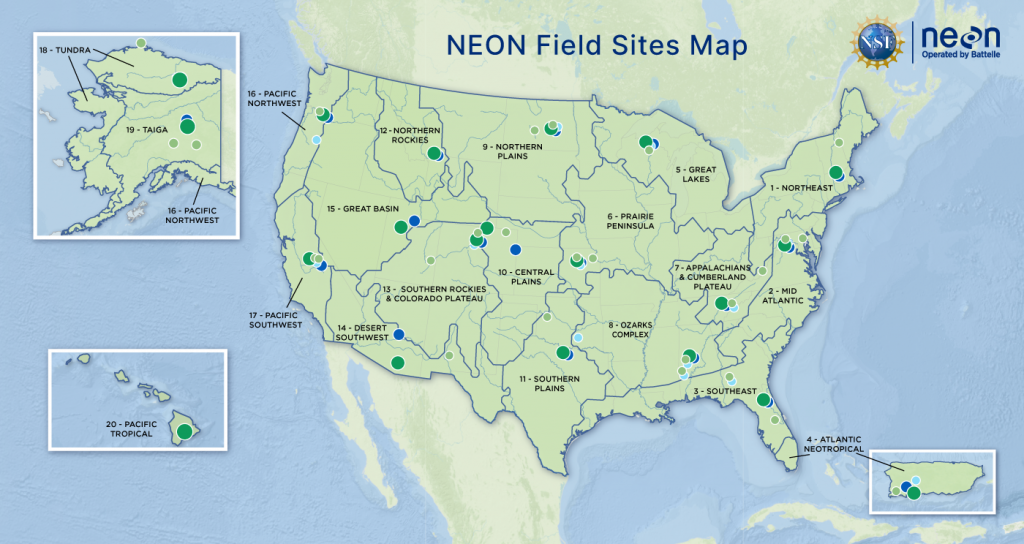As the biological sciences continue to expand in research depth, there is a need for highly trained individuals to fill the workforce. The field of Macrosystems Biology—the regional-to-continental scale study of ecosystems—is one of these blossoming areas in biology. The National Science Foundation has invested in the development, building, and operation of The National Ecological Observatory Network (NEON) as a means of studying long-term changes in ecosystems across the US on a macrosystems scale. The NEON program is the largest ecological observatory network in the U.S. with field sites spanning the country, from Puerto Rico to Alaska to Hawaii. The program will collect ecological data from terrestrial and aquatic field sites in 20 North American ecoclimate domains for 30 years. Each of these domains, along with the project’s central facility, is staffed with numerous biologists with research backgrounds spanning the fields of entomology, disease ecology, biogeochemical cycling, and animal population dynamics, to name a few. The NEON program is the first life-science project to be constructed solely with National Science Foundation (NSF) Major Research Equipment and Facilities Construction (MREFC) funding. This type of funding has historically been reserved for national or international projects, such as space telescopes and particle accelerators, that advance the boundaries of science and engineering and generate data and resources to support the work of hundreds or thousands of researchers over several decades.
Since NEON’s inception, faculty members from our department have been involved in the development and design of the project. This has included developing several of the central themes for the project, aiding in site selection, and testing new ecological equipment to be used during the project. Now that the project is operational, our faculty have trained several undergraduate and graduate students, along with postdoctoral scientists, who have transitioned into permanent research and technical positions with NEON. Currently, there are 10 former UA BSC students working for NEON in various capacities, from field technicians to domain managers. Specifically, Dr. Rajit Patankar, a former postdoctoral scientist in the department, is now the field operation manager for NEON domain 11 in Denton, TX. Jamie Galloway, a 2014 graduate of the department, remains in Tuscaloosa and serves as a senior field ecologist in the Ozark Complex. Additionally, Dr. Stephanie Parker, who received her PhD in the department in 2008, is an aquatic ecologist working in the Aquatic Observation System team at the NEON head office in Boulder, CO. Our department is proud of the strong relationship we have developed with NEON and will continue to enhance our education programs, which will enable our graduates to compete for new positions with NEON and other research organization as big data science continues to expand across the globe.
